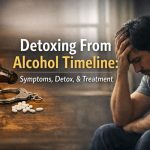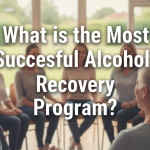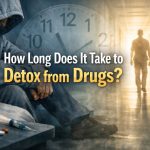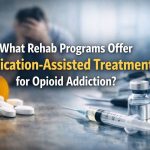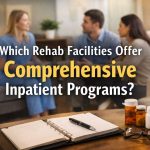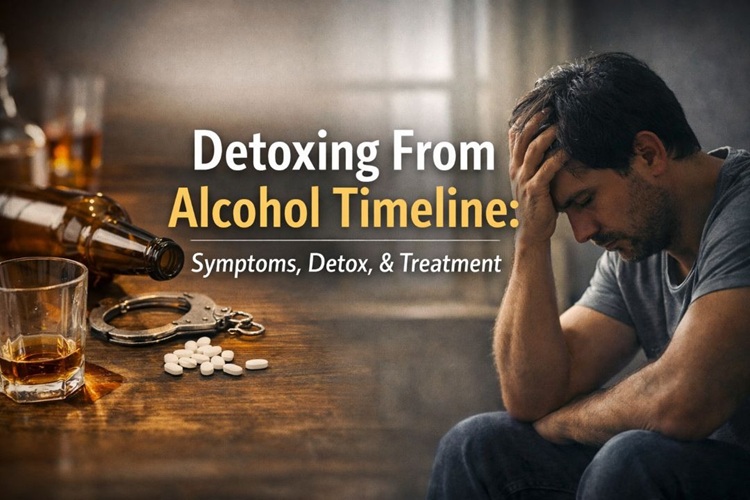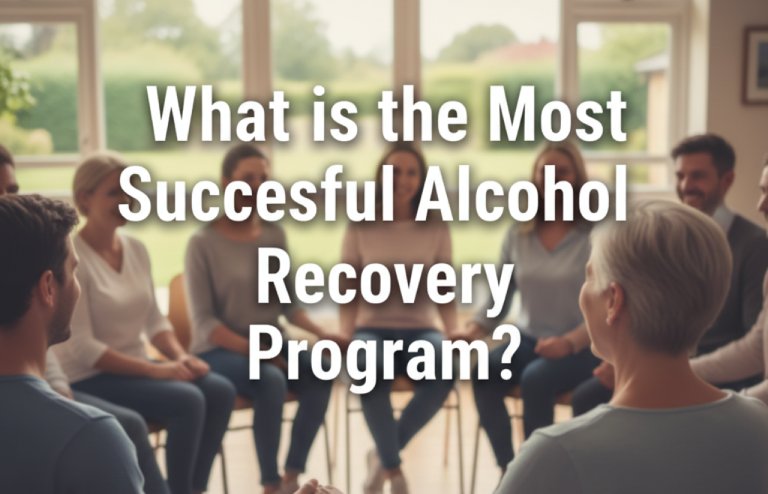Addiction is a multi faceted disorder that affects thousands upon thousands of people all over the world. Whether it is alcohol, drugs or medications such as benzodiazepines, the recovery might need professional assistance. The positive aspect is that there is an array of treatment options to suit most addiction needs, lifestyles, and objectives of different people.
In this guide, we will discuss the various forms of addiction treatment, what happens in those forms of treatment, and which ones can be effective in long-lasting recovery.
Understanding Addiction Treatment
Treatment of addiction is not done in a one size fits all manner. The battle of each individual with substance use is not the same, nor is their journey to recovery. Addiction treatment centers have structured programs that strive to not only deal with the physical dependency but also with the psychological and social conditions that are involved in the addiction.
Treatment could be medical treatment, therapy, support groups or a combination. Some may require around-the-clock surveillance, whereas others may require some degree of freedom on how to handle the addiction problem.
The Different Types of Addiction Treatment
1. Detox Programs
The initial step of recovery is usually detoxification of the system. It means removing substances in the body under the watchful eyes of ridding one of withdrawal symptoms.
- Medical Detox: Medical detox is overseen by treatment professionals and possible medications may be employed to alleviate symptoms.
- Alcohol Detox: Treatment aimed at individuals who want alcohol addiction treatment.
- Drug Detox: They are vital to opioids, stimulants, and benzodiazepines.
Detox is not a total cure in itself but it provides a framework to the long term recovery.
2. Inpatient Rehabilitation (Residential Treatment)
Inpatient rehab requires patients to live at a facility for a set period, typically 30–90 days. These programs provide structured care, therapy, and medical supervision.
- Applied to severe addictions, or to cases of multiple relapses.
- Has a 24/7 support in an environment free of substance.
- A common practice in treatment centers across the country.
This form of immersion would enable the person to solely concentrate on recovery and nothing will pull one out of the recovery because of external influences.
3. Outpatient Rehabilitation
Outpatient programs patients do not stay in a residential facility but go home after their scheduled treatment sessions and therapies.
- An excellent choice of patients with moderate to mild addiction.
- Flexible working hours to accommodate work or school needs or family.
- Covers Intensive Outpatient Programs (IOPs) and Partial Hospitalization Programs (PHPs).
An outpatient rehab program is a common option in patients who are in need of organized care but wish to remain independent.
4. Medication-Assisted Treatment (MAT)
MAT is a blend of medication approved by FDA, counseling and behavioral therapy. It is highly useful in treating opioid and alcoholism.
- Methadone, buprenorphine, and naltrexone are treatment agents of dependency to opioids.
- Disulfiram and acamprosate are alcohol addiction therapies.
- Is stable and eliminates relapse.
MAT is evidence-based and sometimes is a component of the long-term care plan in the context of addiction treatment centers.
5. Behavioral Therapies
Therapy is the important key in diagnosing the causes of addiction. Some of the common treatments are:
- Cognitive Behavioral Therapy (CBT): It assists patients in identifying and shifting the unhelpful thought patterns.
- Dialectical Behavior Therapy (DBT): It may help with emotion control and mental health problems that co-exist with it.
- Motivational Interviewing (MI): Promotes self motivation towards recovery.
- Contingency Management: It entails rewards that are offered to keep sobriety.
A combination of such therapies with medical treatment may be used.
6. Specialized Addiction Treatment Programs
Other programs are formulated with a certain addiction or category of individuals:
- Heavy Drinking Cure Programs – Dedicated to long-term alcohol use issue remediation.
- Drug Addiction Treatment programs are customized to the substance use, whether it is opioids, cocaine, or methamphetamines.
- Benzodiazepine Addiction Treatment – Helps safely taper the benzodiazepine and offers long-term help.
- Dual Diagnosis Treatment – Dual diagnosis deploys treatment to people with an addiction and mental illness.
7. Support Groups and Peer Programs
The peer support is an important component of recovery. Other programs such as Alcoholics Anonymous (AA), Narcotics Anonymous (NA), and SMART Recovery offer support and responsibility.
These groups are usually prescribed to complement continued support that is professional.
8. Aftercare and Relapse Prevention
Recovery does not stop upon the exit of a program. The programs are aftercare, which include continued therapy, sober living places, and relapse intervention design.
It is vital to create a support network and learn coping skills to become successful in the long run.
100% Confidential Support is Available 24/7
No matter what you’re going through, you’re not alone. Our dedicated team is here to provide a safe, judgment-free space where you can talk openly and honestly. Whether you need emotional support, resources, or just someone to listen.
We’re here for you—completely confidential and always respectful of your privacy. Call us today!
Choosing the Right Addiction Treatment
Choosing the optimal forms of treatment against addiction is based on various factors:
- kind of substance employed
- Duration and the severity of addiction
- Other mental and health conditions
- Personal commitments (work, school and family)
- The history of previous treatment
Consultations with specialists of an addiction treatment center can provide an idea of the most efficient way out.
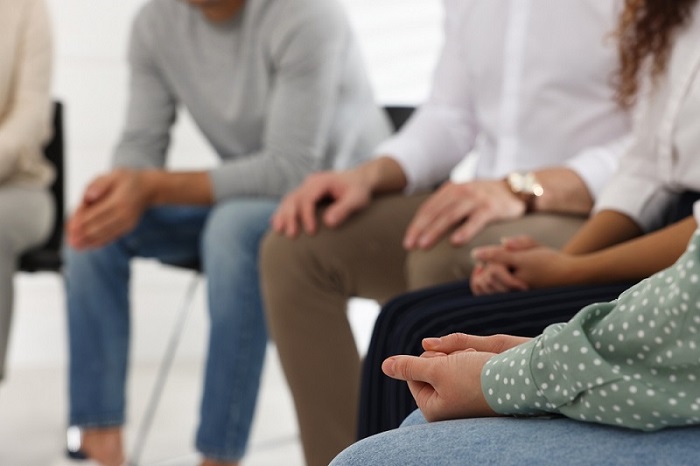
Take the First Step Toward Recovery
Professional care is available to those battling substance use if you or a loved one needs help. We offer a person-centered evidence-based level of compassionate care at At Solutions Healthcare. Whether it is alcohol addiction treatment or benzodiazepine addiction treatment, we are there to guide you through out the process.
Give us a call today at (386) 866-3600, and talk to one of our caring experts to begin your life back to health.
FAQs About Types of Addiction Treatment
1. What different kinds of treatment exist for addiction?
The key ones are detox treatments, residential rehab, outpatient rehab, medicated treatment, behavioral interventions, and continuity services. They both concern different elements of recovery.
2. What treatment options are available for drug addiction?
Drug addiction treatment may involve detox, inpatient or outpatient rehab, therapy, and sometimes drugs such as buprenorphine or methadone. Peers support groups and aftercare are also critical.
3. What are the three main categories of treatment for drug addiction available?
The main three categories are:
- Medical care ( detox, MAT )
- Behavioral (therapy, counseling)
- Treatment based on support (self-help, follow-up)
4. Which type of therapy is commonly used to treat addiction?
The most common therapy in treating addiction is Cognitive Behavioral Therapy (CBT). It assists people to spot and alter negative thought and behaviors that perpetuate substance use.
5. What is the most effective treatment for addiction?
The best solution is holistic in nature with regards to medical care, treatment and follow-up. This has been proved by evidences that show that the addiction treatment facilities that provide individualized care plans boast the best success rates.







